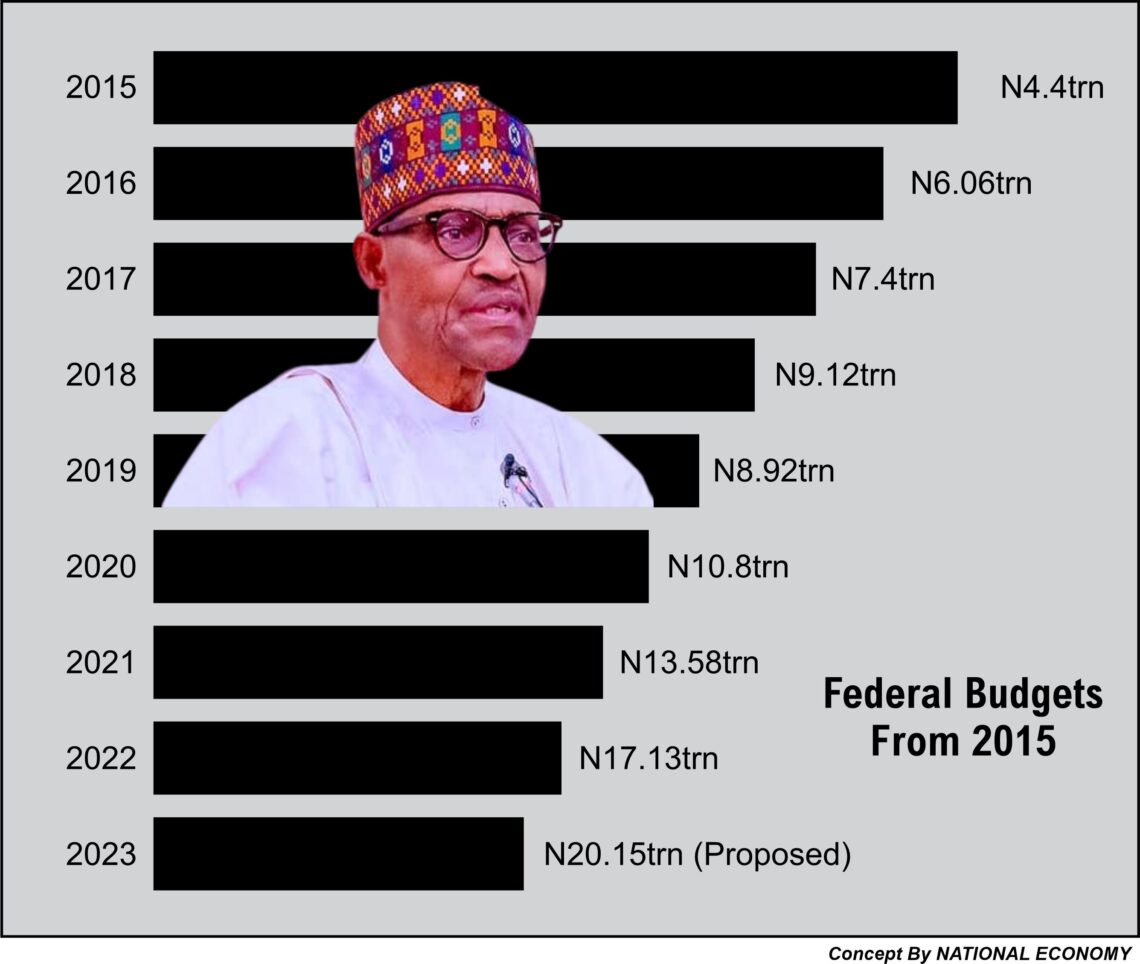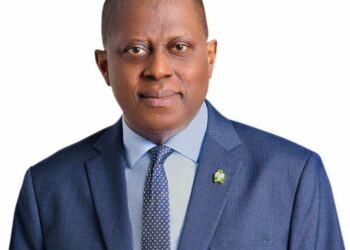The federal government will borrow N48,000 on behalf of each Nigerian in 2023 to fill the proposed budget deficit. If President Muhammadu Buhari’s 2023 budget proposal scales through lawmakers’ perusal, next year’s borrowed funds will amount to N48,000 for each Nigerian based on the statistic that N10.5 trillion divided by 217 million Nigerians amounts to N48,000.
Compared to the current year, where the deficit is expected to hit N6.25 trillion before the end of the fiscal period, in relation to a population of 215 million, each Nigerian is paying N29,000 for debt incurred. 2023 deficit will be a 35 per cent debt burden increase on each Nigerian.
Compared to the 2021 burden per person, in which each Nigerian’s burden stood at N29,000, the 2023 figure will represent about the same percentage increase over 2021.
2023 will be a special year for Nigeria as the country goes into one of the most contested elections in its history, with the race being a three-horse contest for the first time in its nascent democracy.
The federal government, among other reasons, is preparing to fund one of the most expensive elections in its history, with more people than ever, registered to engage in the exercise, which requires logistics.
President Buhari, in his budget presentation on Friday, launched the ambitious plan to grow the country’s economy and end its security woes with record government expenditure during the next fiscal year.
The record 20.5 trillion naira ($47.3 billion) proposed expenditure “reflects the serious challenges” faced by Nigeria and contains “key reforms necessary to address them,” Buhari told lawmakers when presenting the budget in Abuja on Friday.
The budget, which is expected to be approved and take effect in January 2023 is 19 per cent higher than this year’s government expenditure and is also Nigeria’s highest ever, prioritising fiscal sustainability, economic growth, and security.
As Nigeria still battles violent extremism in its north-east and armed attacks in the north-west and central regions, resulting in the loss of thousands of lives, Buhari allocated the most funds to defense and internal security.
At least N5.3 trillion ($12.2 billion), or 26 per cent of the proposed budget, is to go into capital expenditure in an ambitious plan that the nation’s government is banking on to build key infrastructure and create jobs in Africa’s biggest economy where many years of bad governance and corruption have stifled development.
“The 2023 budget was prepared amidst a very challenging world economy that is weakened by the lingering effects of the COVID-19 pandemic, high inflation, high crude oil prices resulting in the huge cost of (a gasoline subsidy) and negative spillover effects of the Russia-Ukraine war,” said Buhari who is to leave office as president next year after general elections in February.
With projected economic growth of 3.7 per cent and N16.87 trillion ($38.9 billion) in expected federal government revenue in 2023, Buhari said Nigeria is aiming to achieve “higher, more inclusive, diversified and sustainable growth” with the proposed budget.
External borrowings to the tune of 8.8 trillion naira ($20.3 billion) would fund the budget deficit, Buhari said, amid concerns over the country’s high public debt of N41trillion ($96.7 billion) as of March. The country has also missed out on rising oil prices with limited crude production blamed on oil theft.
“I assure you, insecurity, especially banditry and kidnapping, will be significantly curtailed before the end of this administration. We will redouble our efforts to ensure we leave a legacy of a peaceful, prosperous, and secured nation,” he said, adding that the “significant challenges” Nigeria faces “would have been much worse” if not for the government’s interventions.





